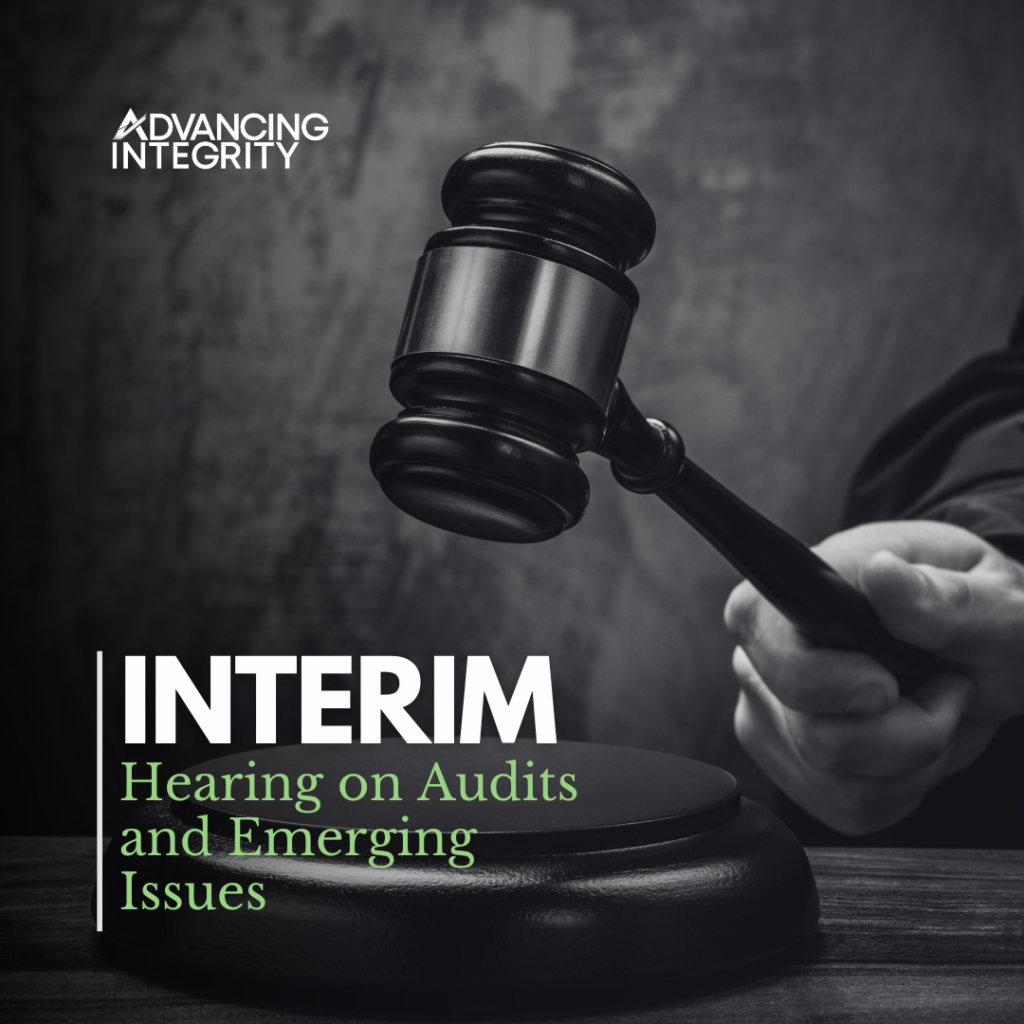Ballot secrecy, transparency, voter roll maintenance systems, emergency preparedness, and general preparedness for this November’s crucial election are at the forefront of everyone’s minds. These issues were all addressed in the August 26th Texas House Elections Committee’s Interim Hearing. The Committee heard invited testimony from Christina Adkins, Director of Elections at the office of the Secretary of State (SOS) and election officials from around the state.
The SOS audits of Eastland, Guadalupe, Cameron, and Harris counties that covered the elections in 2021 and 2022 were first on the agenda. Christina Adkins testified with their results. She indicated that the most common areas for improvement are in plans, policies, and procedures. While all counties had some plans in place, written directions were often lacking. Training for election workers and staff also needed attention, especially in the completion of election paperwork and chain of custody.
The positive takeaways were that election security is a priority in general and that these audits created or fostered a “culture of self-improvement.” Also, the counties are making list maintenance activities more of a priority in the wake of SB1113 which allows the SOS to withhold funds from counties that don’t maintain accurate voter rolls. Adkins also suggested that the audit periods be amended from two consecutive years to one year for an initial audit and then a follow-up audit to ensure changes are implemented.
To learn more about the audit results, click HERE.
When asked about non-citizens on the voter rolls. Adkins testified that DPS provides weekly lists to her office of people who have self-identified as non-citizens. These names are then sent to counties for investigation and she confirmed that those registrations are being canceled. She went on to say that her office is always seeking more data sets to verify citizenship. Perhaps she was referring to federal databases that would efficiently and accurately identify non-citizens on the voter rolls. Adkins also mentioned that her staff has increased from 32 to 90 employees, allowing much more opportunity for oversight and engagement.
The next section of testimony focused on a new and improved Texas Election Administration Management (TEAM) system, referred to as TEAM 2.0, set to launch in 2025. TEAM 2.0 will have the capacity and extra features to make it a viable and competitive option for large counties.
Right now 33 counties are considered offline and use third party vendors to manage their systems. This can cause issues with syncing the databases between the county and state. Ideally, all counties would be on the TEAM system, but until the upgrade, it does not have the capacity for the large counties. Some counties may still need to purchase add-ons from third parties, but TEAM 2.0 should be able to provide all the basic systems the county needs. The newer system will not only be an upgrade for the counties, it will also be an upgrade for transparency and accountability.
The final section of testimony was a compilation of emerging issues in elections. They began with emergency management and preparedness. Adkins testified that cybersecurity has been at the forefront of their concern, but physical threats are becoming an issue as well. She stated that the addresses of Texas election officials have been posted online along with threats. Outside of Texas threats have been made to election workers as well. Any threats are unacceptable and must be addressed.
Next was the topic of ballot secrecy and Adkins made it clear that redactions are a temporary “band-aid” and not a permanent solution. Instead she suggested rethinking how precincts are drawn. Precincts could be made larger or drawn to contain fewer ballot styles. In low-turnout elections results could be aggregated. Some granularity would be lost for political campaigns analyzing voting patterns, but the election would still be auditable. She did not say that precinct reporting would be eliminated, just adapted. It is imperative that whatever solution is adopted, transparency and auditability must be protected.
After this discussion some other specific challenges were addressed like the spread of misinformation, pending hurricanes that aren’t actually in the forecast and incorrect claims about stray marks on ballots. Election integrity activists and advocates must be very cautious about sharing unsubstantiated rumors.
Heather Hawthorne, County Clerk of Chambers County, suggested in her testimony that more training is needed for law enforcement. When they are called to a polling location they frequently don’t know how to handle the situation or even who is in charge. All parties could benefit from additional funding going toward this goal.
Overall, the hearing addressed numerous issues, illustrated how previous laws were benefitting the security of Texas elections, and discussed potential legislation for the upcoming session beginning in January of 2025. It is going to take all of us working together to ensure Texas elections continue to improve.

